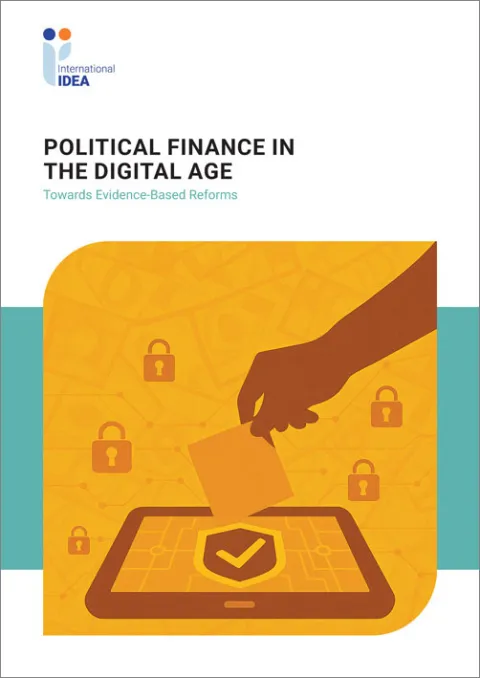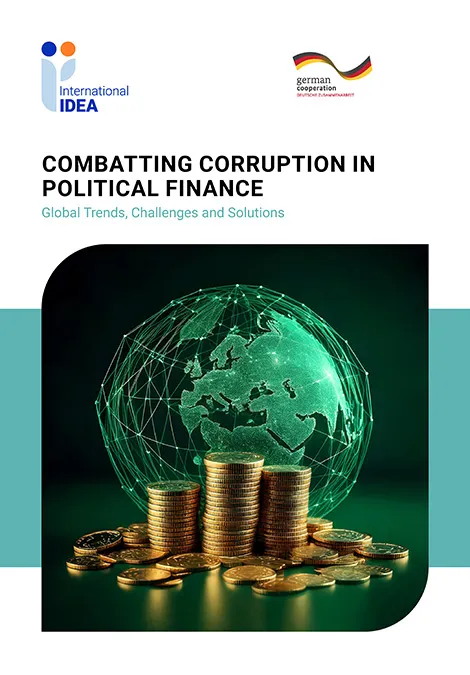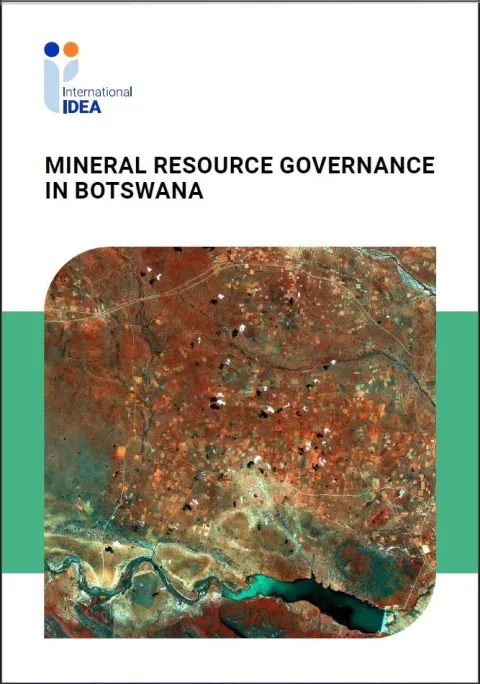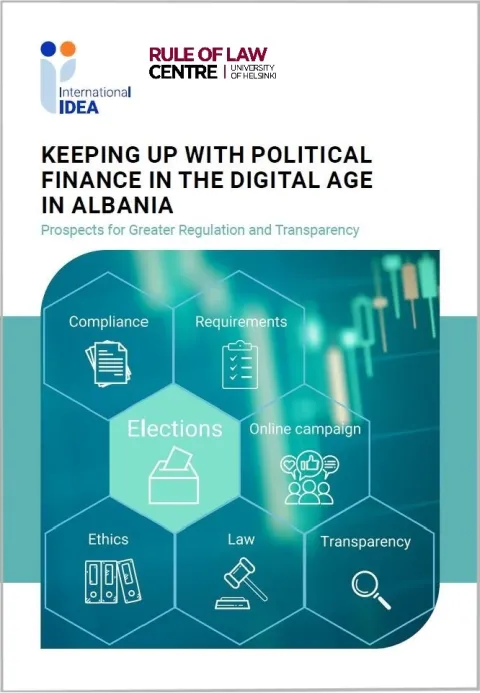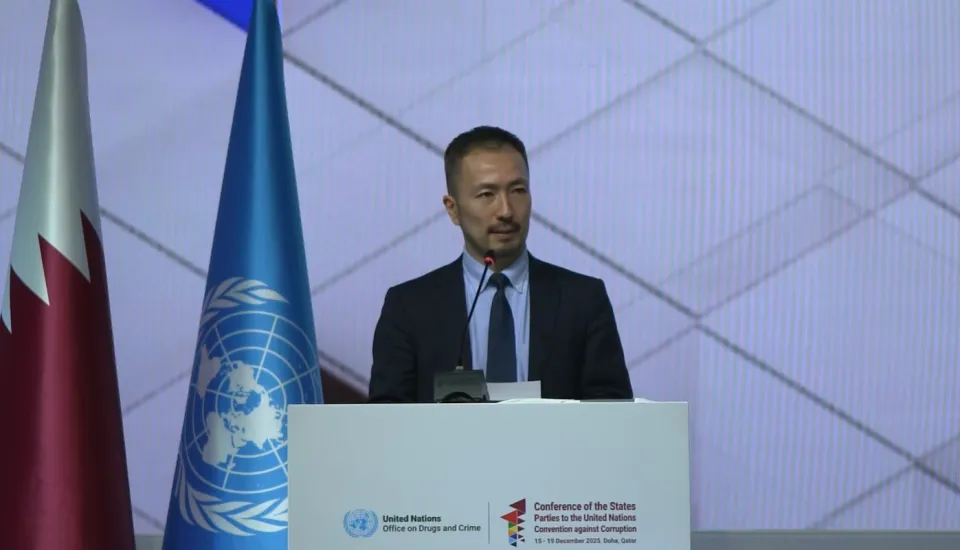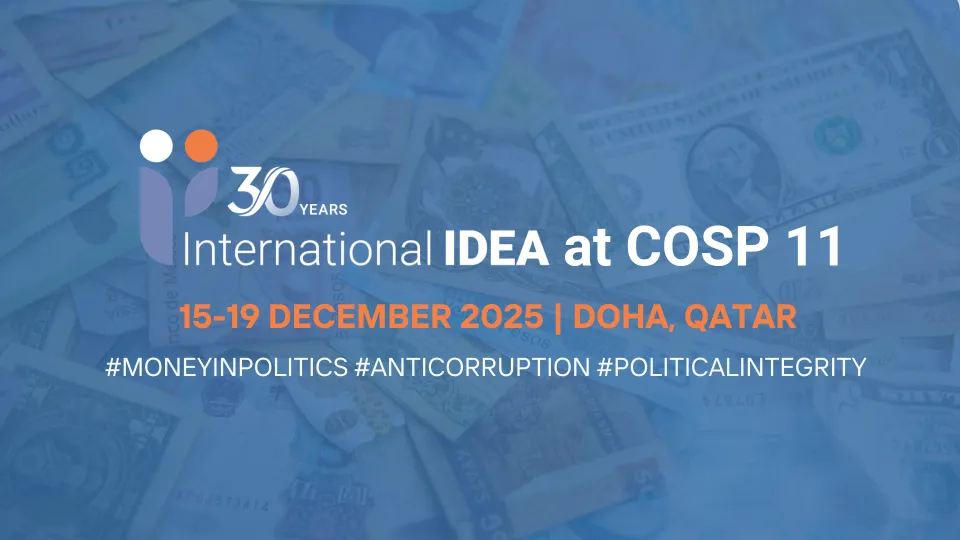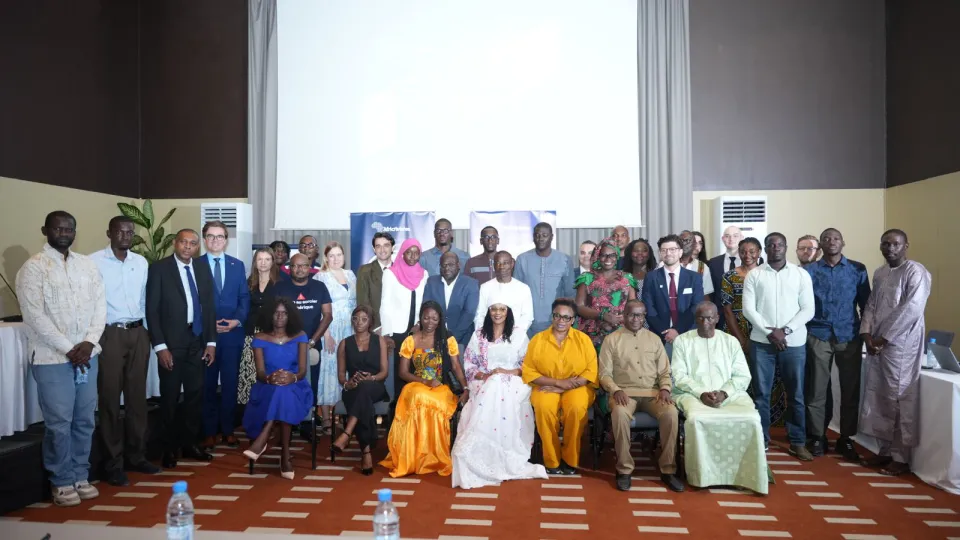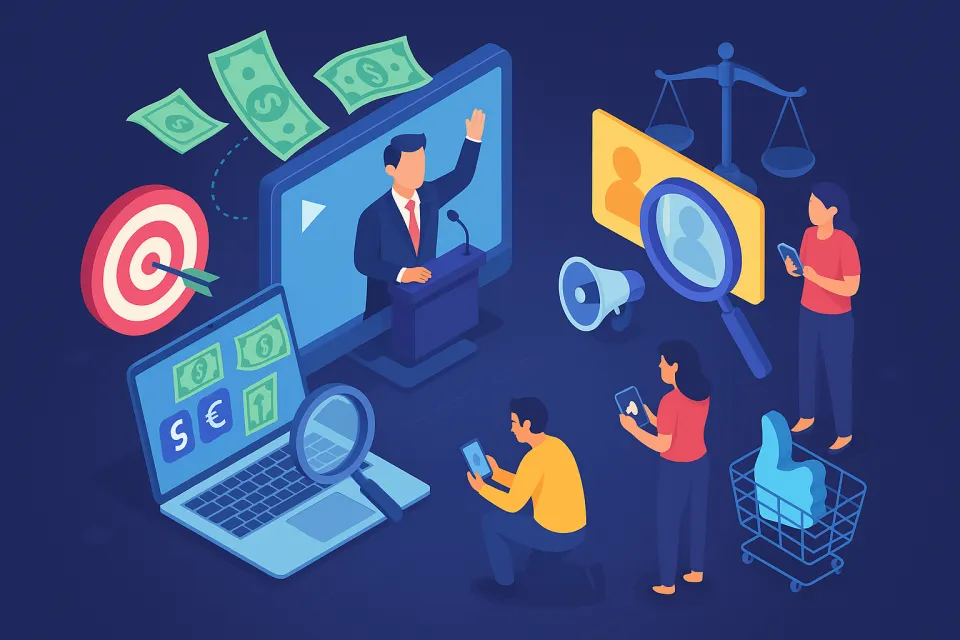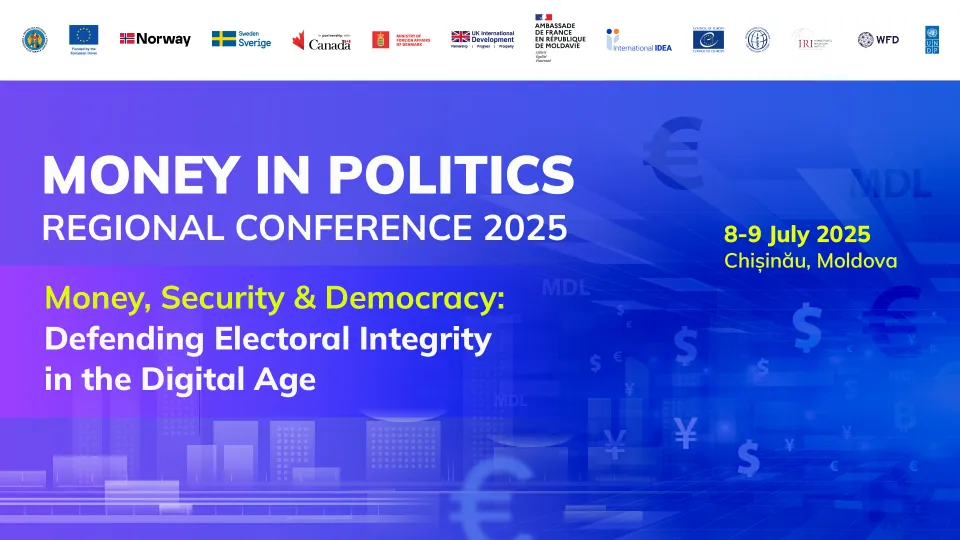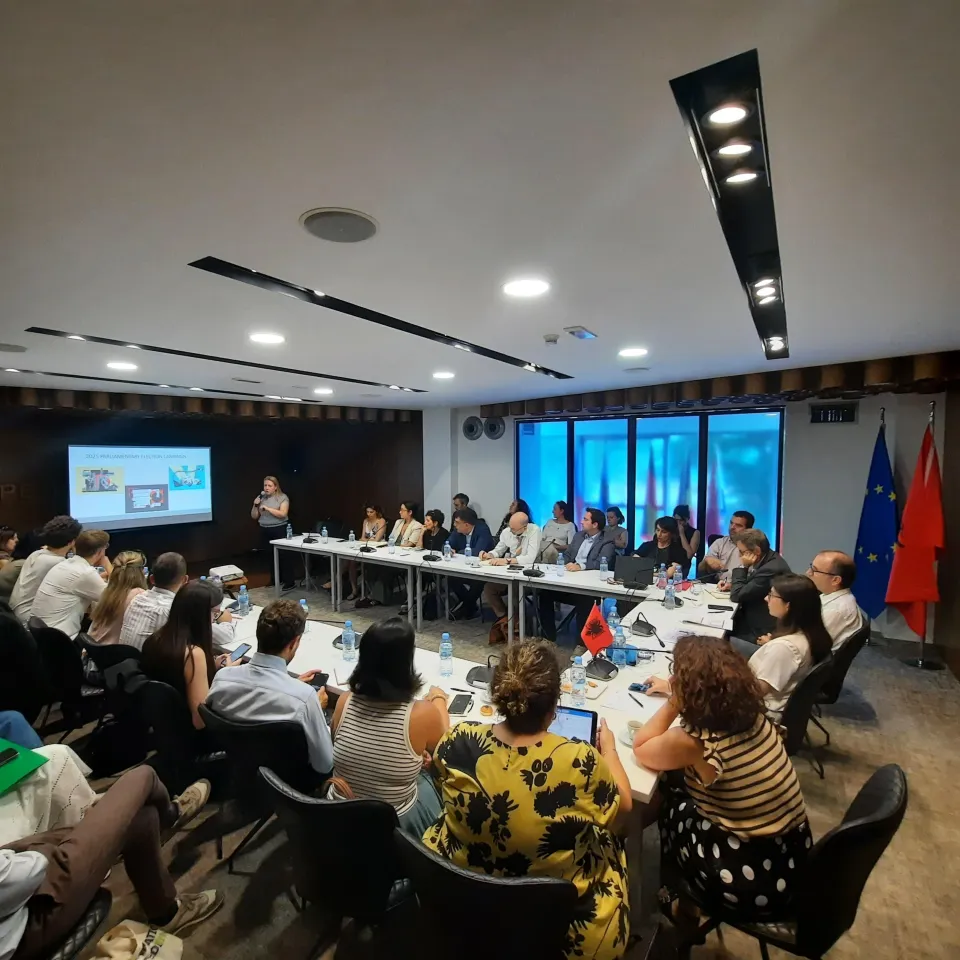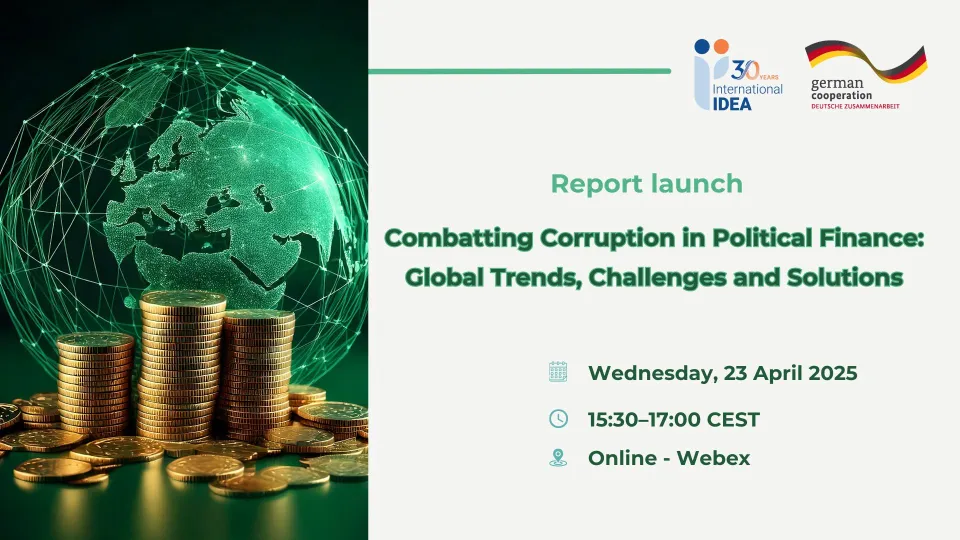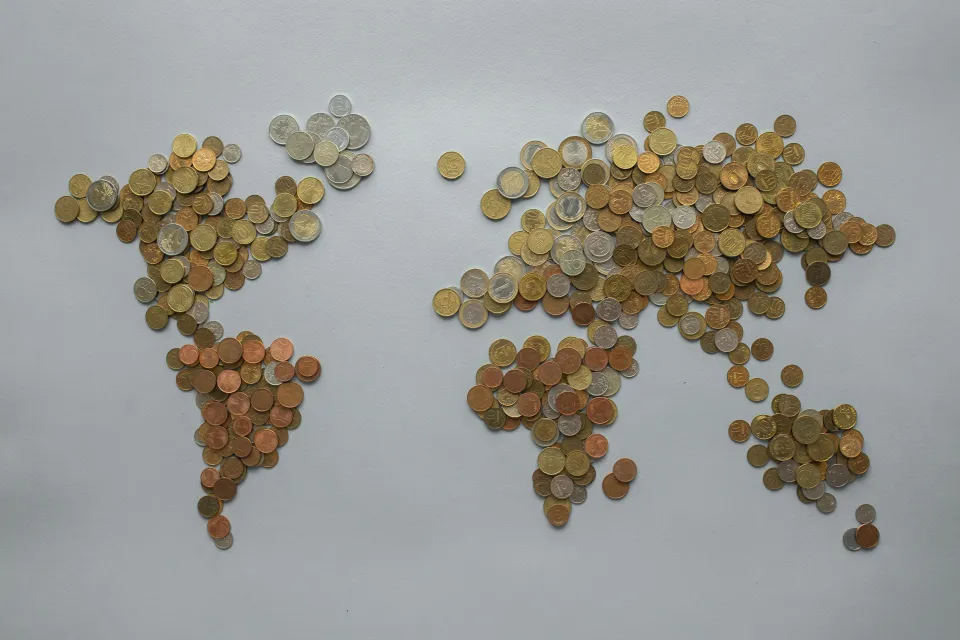Imagining the Future of Crime and Politics
Organized crime networks dedicated to illicit trafficking of drugs, people and wildlife—as well as money laundering and cybercrime, among other activities—are engines of instability.
On 4 May 2017, International IDEA hosted the workshop ‘Political corruption and organized crime: Drivers, effects and responses’ at the 2017 Stockholm Forum on Peace and Development, organized by Stockholm International Peace Research Institute (SIPRI).
The workshop aimed to discuss potential future trends regarding corruption linked to organized crime and strategic policy responses. It gathered scholars and practitioners in anti-corruption, international crime prevention and peacebuilding in a common dialogue.
This Discussion Paper, written from the perspective of a fictitious criminal network, depicts a scenario where conflict, democratic decline and new technologies exacerbate the negative impact of organized crime on the state. By describing an imaginary future, it includes the most relevant concerns for practitioners within the field.
Details
Staff authors
Contents
Acknowledgements
Introduction
1. The world in 2028: Three future scenarios
2. Policy options and recommendations
References
About the authors
About International IDEA
Give us feedback
Do you have a question or feedback about this publication? Leave us your feedback, and we’ll get back to you
Send feedbackImagining the Future of Crime and Politics
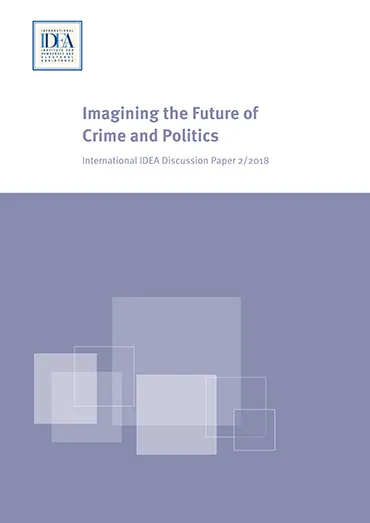
| Total views | 9969 |
|---|---|
| Downloads | 30 |
| Rating |
Staff authors
Give us feedback
Do you have a question or feedback about this publication? Leave us your feedback, and we’ll get back to you
Send feedback

